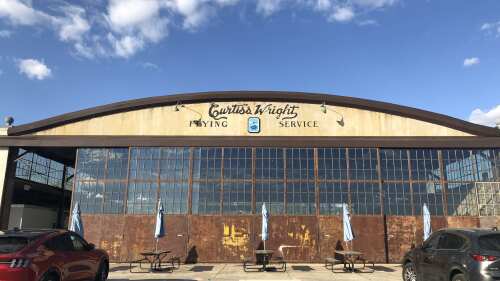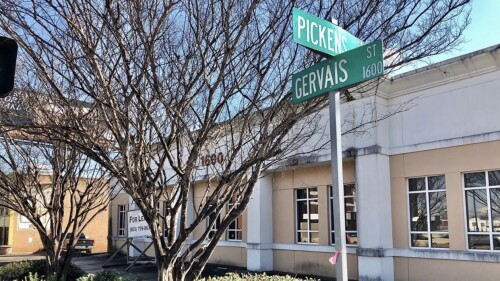Nephron Pharmaceuticals
In early May, West Cola-based respiratory drug manufacturer Nephron Pharmaceuticals announced their new educator program, providing a secondary income for local teachers + administrators as part-time Nephron employees. The program received national attention by NBC earlier this month, and just last Thursday, garnered a visit from U.S. Secretary of Education Betsy DeVos to applaud the program; part of the national Pledge to America’s Workers initiative.
There are currently ~660 educators in Nephron’s program, with an average of 60 teachers working each day + making $21/hour during six-hour shifts.
To put that into perspective: The state’s minimum starting salary for a first-year teacher for the 2018-19 school year was $32,000. Accounting for taxes + health insurance, that breaks down to ~$1,800/month, meaning a teacher could make the equivalent of half their monthly teaching income by working seven shifts per month at Nephron.
Nephron’s goal is to help S.C. teachers who want to stay in their teaching jobs do just that by providing them with the extra income many need to pay their mortgages, bills, student loans + more. (The need is strong. Before the 2018-19 school year, 5,300 S.C. teachers left the public school system, and just over 1,640 students were graduating from teaching programs.)
Here are three S.C. teachers who are working in Nephron’s educator program:
Michelle Brown is a band director in Rock Hill (approx. a one-hour drive from Nephron’s campus) who heard about the program from another teacher at her school. “I would leave work on a Friday, go to Nephron, then work a night shift,” she says. “I love teaching, but the salary alone just isn’t enough.” She notes the popularity of the program, describing having to jump on the shifts she wants (which employees sign up for using an app) because they fill up so quickly.
“Most teachers talk about how they pay a bill or cover childcare costs with what they make at Nephron.” Brown has her Master’s degree +30, which affords her a higher salary than someone with a Bachelor’s, but “it isn’t enough for me to own a house, have a reliable car, etc.”
Between teaching privately after school, having two stipend positions at school + working at Nephron, Brown is “still just squeaking by, but I can afford a home, cover my staggering student loan payments, and have the basics.”
Brown isn’t the only teacher who commutes to Nephron from outside the Columbia area.
Lauren Garner, business education teacher at Pelion High School, was shocked to find herself working with teachers from Lancaster County. “They were driving one to two hours, working a night shift, then getting up early to teach the next day,” Garner said.
Though at first she was picking up as many shifts as possible, Garner has had to slow down because of her other summer obligations, like attending professional development + planning curriculum for the upcoming school year. In addition to her course load as a business education teacher, Garner is in charge of the yearbook as well as the school’s Teacher Cadet program. “It’s a lot of work,” she says, “but extremely rewarding.” Garner is also busy working towards her Master’s +30 (the same degree level as Brown) in order to be better compensated.
According to the National Education Association, the average starting salary for teachers in S.C. was – until recently – $33,148. (In an effort to attract new teachers + keep current teachers in the classroom, the General Assembly voted to increase starting salary to $35,000 for the 2019-20 school year.) For newer teachers at the lower rungs of the payscale, the ability to pick up just a few shifts a month at Nephron can have a big impact. But the program has also attracted plenty of veteran teachers.
Lisa Ellis, founder of the grassroots teachers’ advocacy organization SC for Ed, said she considered applying for Nephron’s program herself, as “it is very difficult to live on a teacher’s salary and be single. I am in year 19, and I struggle every month to make ends meet.”
These teachers agree that – while it’s a shame so many educators face the need for a second job – Nephron’s program is a positive thing. Says Garner, “Lou Kennedy [president and CEO of Nephron]’s mom was a teacher. She saw the need for this program, and she is doing what she can to help.”
“We are grateful for our teachers,” says Kennedy. “We are proud of how hard they work with our children and at Nephron, and we hope other companies across S.C. will join us in supporting them in and out of the classroom.” Ⓟ
Poll
Thanks! Please find the correct answer in the Wrap section of today’s newsletter.











